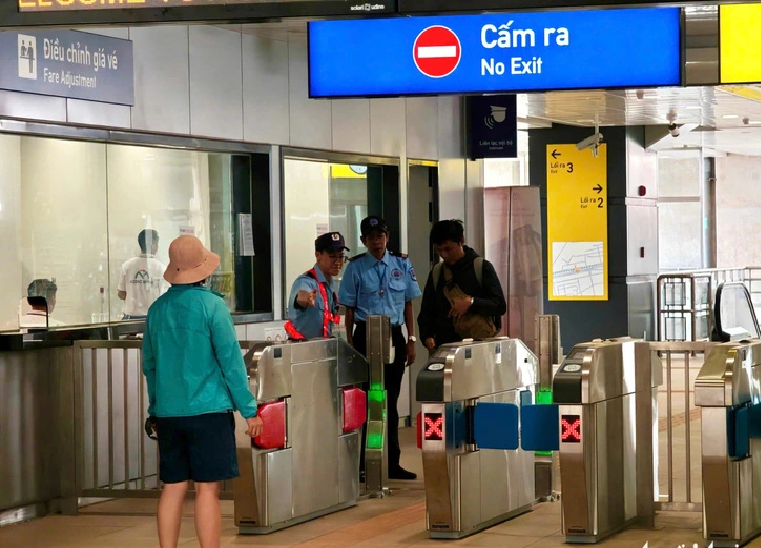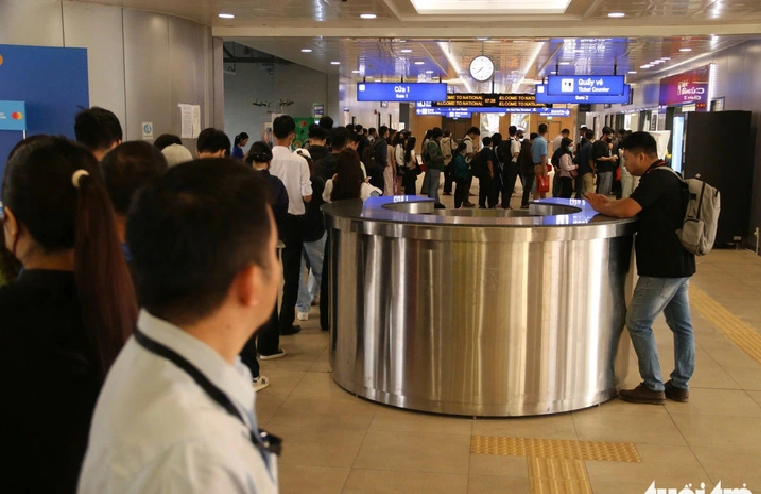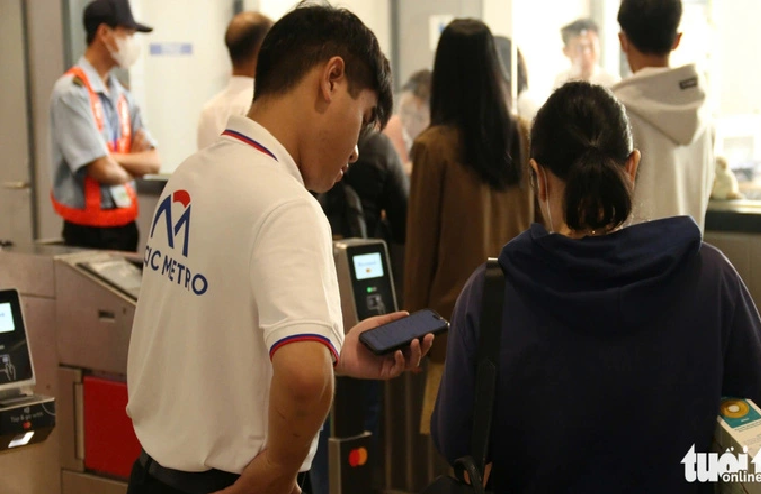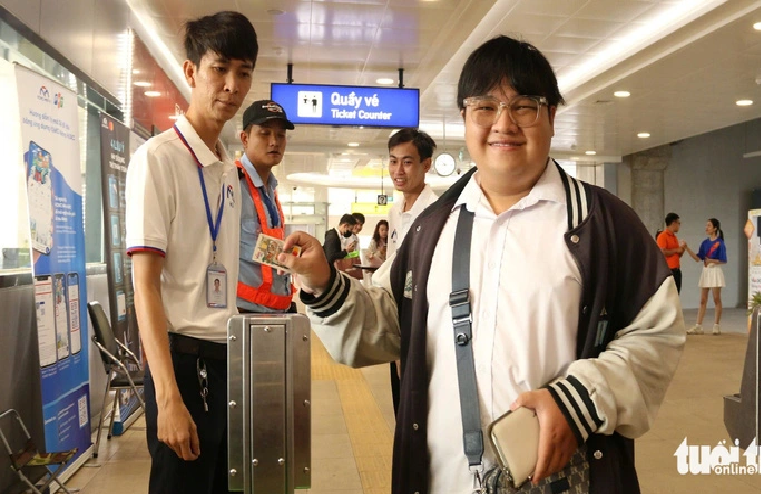Passengers began paying fares on Tuesday to travel on the Metro Line No. 1 in Ho Chi Minh City after 30-day free rides.
At 7:30 am on Tuesday, An Phu Station in Thu Duc City was bustling with passengers, primarily students and office workers who have made the metro a part of their daily commute.
On the first day of fare collection, some passengers were still unfamiliar with the payment process and struggled to use the HCMC Metro app, despite having downloaded it beforehand.
Minh Ngoc, a student at the Ho Chi Minh City University of Technology, shared that she had been using the metro line frequently over the past 30 days to travel from Thu Duc City to Binh Thanh District.
According to Minh Ngoc, metro passengers do not have to suffer traffic congestion, scorching heat, dust, or worry about being late.
“This morning, I used my Mastercard for automatic payment without having to queue or wait long for a ticket. However, some passengers were confused about how to make cashless payments through the HCMC Metro app or Mastercard, so they had to buy single-trip tickets,” said Ngoc.
 |
| Passengers are instructed to use metro services at the An Phu Station in Ho Chi Minh City. Photo: Thu Dung / Tuoi Tre |
Similarly, at the National Vietnam University-Ho Chi Minh City station in Thu Duc City, a large crowd of people lined up to purchase tickets for Metro Line No. 1.
Some passengers were unsure how to use metro cards and then got support from staff.
Pham Hoang Phuong, a resident of District 12, also found it convenient to use his Mastercard to pay for metro tickets.
“I’ve ridden metro lines in other countries many times, so I’m used to buying tickets. What impressed me was that as soon as I approached the ticket gate, staff supported me enthusiastically, so I didn’t feel too confused,” Phuong shared.
 |
| Many people queue up to buy metro tickets at the National Vietnam University-Ho Chi Minh City station in Thu Duc City, Ho Chi Minh City. Photo: Bui Nhi / Tuoi Tre |
Meanwhile, T.L., born in 1991, registered for a Mastercard on Tuesday morning, saying that many people had to queue to buy tickets.
“I hope more ticket counters will be set up to avoid long queues.”
According to Le Minh Triet, director of Ho Chi Minh City Urban Railway No. 1 Co. Ltd., the number of commuters choosing to travel on Metro Line No. 1 is currently high.
The company assigned staff to stations to assist passengers with various payment methods, using cards or the HCMC Metro app.
For passengers who do not have a card or app, they will guide them to register for a card for long-term use.
Triet advised commuters to make cashless payments to avoid long queues and receive discounted fares.
Ho Chi Minh City Urban Railway No. 1 Co. Ltd. is working with payment intermediaries, such as Momo and Napas, to offer more payment options, Triet said, adding that passengers will not need to queue to buy single-trip tickets but can use Momo or Napas cards to use metro services from Friday this week at the latest.
 |
| An employee of Ho Chi Minh City Urban Railway No. 1 Co. Ltd. instructs a local passenger to make cashless payments to avoid queueing up. Photo: Bui Nhi / Tuoi Tre |
Single-trip fares for passengers paying with cash range from VND7,000 (US$0.28) to VND20,000 ($0.79), depending on the distance.
Non-cash payments are slightly lower, at VND6,000-19,000 ($0.24-0.75) per ride.
Single-day tickets cost VND40,000 ($1.6) per passenger; three-day tickets, VND90,000 ($3.5); and monthly tickets, VND300,000 ($11.8).
Students are given a 50-percent discount per monthly ticket.
Individuals recognized for meritorious service, people with disabilities, senior citizens, and children under six are entitled to free metro services.
The metro line project was launched in 2006, and its construction began in 2012. It was put into commercial service on December 22 last year and offered commuters free rides for the first 30 days.
The line stretches 19.7 kilometers from Ben Thanh in District 1 to Suoi Tien Coach Station in Thu Duc. It includes 2.6 kilometers of underground urban rail link and 17.1 kilometers of elevated track.
There are 17 trains, each capable of accommodating 930 passengers, including 147 sitting and 783 standing.
The metro line carries a price tag of VND43.7 trillion ($1.7 billion).
Like us on Facebook or follow us on Twitter to get the latest news about Vietnam!



















































